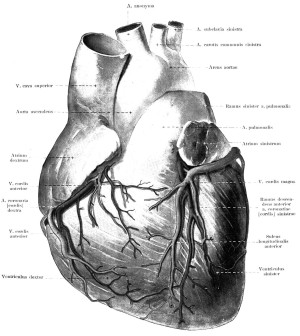- Could Your Grocery Store Meat Be Causing Recurring UTIs?
- Are You Making This Expensive Thermostat Error This Winter?
- Recognizing the Signs of Hypothyroidism
- 10 Strategies to Overcome Insomnia
- Could Artificial Sweeteners Be Aging the Brain Faster?
- Techniques for Soothing Your Nervous System
- Does the Water in Your House Smell Funny? Here’s Why
- Can a Daily Dose of Apple Cider Vinegar Actually Aid Weight Loss?
- 6 Health Beverages That Can Actually Spike Your Blood Sugar
- Treatment Options for Social Anxiety Disorder
Extreme Preemies May Be at Risk for High Blood Pressure as Adults

Very preterm infants — those born before 29 weeks of pregnancy — appear to have a bigger risk of high blood pressure in young adulthood, two small, preliminary Canadian studies suggest.
In one study, researchers found that the risk for high blood pressure was tied to smaller-than-normal kidneys at birth. A second study by the same researchers found a link between high blood pressure and impaired function in the cells that line blood vessels.
“These studies highlight how important it is for those born preterm to look after their health,” said Dr. Anne Monique Nuyt, who co-authored both studies. She’s a professor in the department of pediatrics at the University of Montreal.
Thanks to modern medicine, more very preterm infants have survived in the past 30 years than before, she said. But since these preemies are only now reaching their 30s and 40s, any potential health problems that may emerge as they reach their 60s and 70s aren’t yet known, Nuyt said.
Nuyt stressed that having higher blood pressure, smaller kidneys or problems with blood vessel cells won’t necessarily lead to heart disease.
“I can only say these are risk factors,” she said. Also, the study couldn’t prove a cause-and-effect relationship.
“I don’t want to be alarmist. These young adults are carrying on their own lives — they’re working, getting married and having children. But we have to make sure they are well looked after,” Nuyt said.
The results of the studies were scheduled to be presented Thursday at an American Heart Association meeting in Orlando, Fla. Findings presented at meetings are generally viewed as preliminary until they’ve been published in a peer-reviewed journal.
“Prior studies have shown that adults born as small preterm infants show more pronounced cardiovascular risk factors, including high blood pressure,” Dr. Gregg Fonarow said. He’s a spokesman for the American Heart Association and a professor of cardiology at the University of California, Los Angeles.
“These findings may provide potential mechanisms as to how being born preterm can contribute to excess cardiovascular risk factors and subsequent heart disease,” he said.
For the first study, Nuyt and colleagues compared the size and function of the kidneys in 40 adults born at 29 weeks of gestation or earlier with 40 adults born at full term (40 weeks of gestation). The study volunteers’ average age was 24. The researchers measured the blood pressure of all the participants.
They found that the kidneys of those born prematurely were smaller, relative to their body size, than those born at full term. In addition, the young adults born prematurely had higher blood pressures than those born at term, Nuyt said.
The differences in blood pressure were not large, the researchers said. For example, the average systolic blood pressure (the top number) was 5 points higher in adults born early (120 mm Hg) than in those born full-term (115 mm Hg).
The difference was significant enough, however, to be a sign of potential heart disease down the line, Nuyt said.
She said that blood pressure usually increases with age, especially among people who have high blood pressure as young adults. Nuyt cautioned again that it’s too early to be certain that these individuals will develop heart disease.
For the second study, Nuyt’s team compared the function of cells, called endothelial cells, that line blood vessels in 30 young adults born very preterm and 30 young adults born at full term. The volunteers in this study were between 21 and 28 years old.
In laboratory tests, the researchers found that cells from preterm adults were slower to form colonies, which is an essential step in forming new tiny blood vessels. These vessels, called capillaries, carry oxygen and nutrients to the cells throughout the body, the study said.
This resulted in higher blood pressure and an enlargement of the heart’s left chamber, which pumps blood into the arteries. Both of these are risk factors for heart disease, Nuyt said.
Dr. Madeleen Mas is a pediatric cardiologist and director of the fetal cardiology program at Nicklaus Children’s Hospital in Miami. “Since we have a very high population of extremely premature infants who are surviving today, this is going to increase the population of people with high blood pressure, which is the single most important factor in stroke and heart disease,” Mas said.
“It’s extremely important for pediatricians to follow these patients more carefully,” she added.
More information
For more information on preterm infants, visit the U.S. Centers for Disease Control and Prevention.
Source: HealthDay
Copyright © 2026 HealthDay. All rights reserved.










